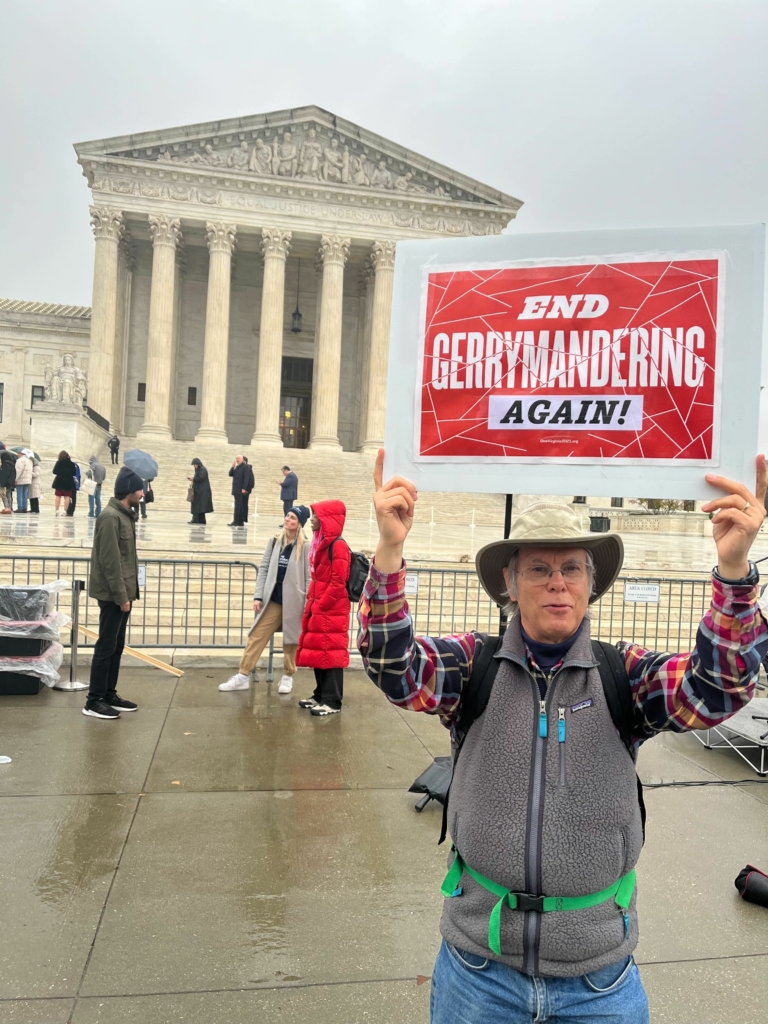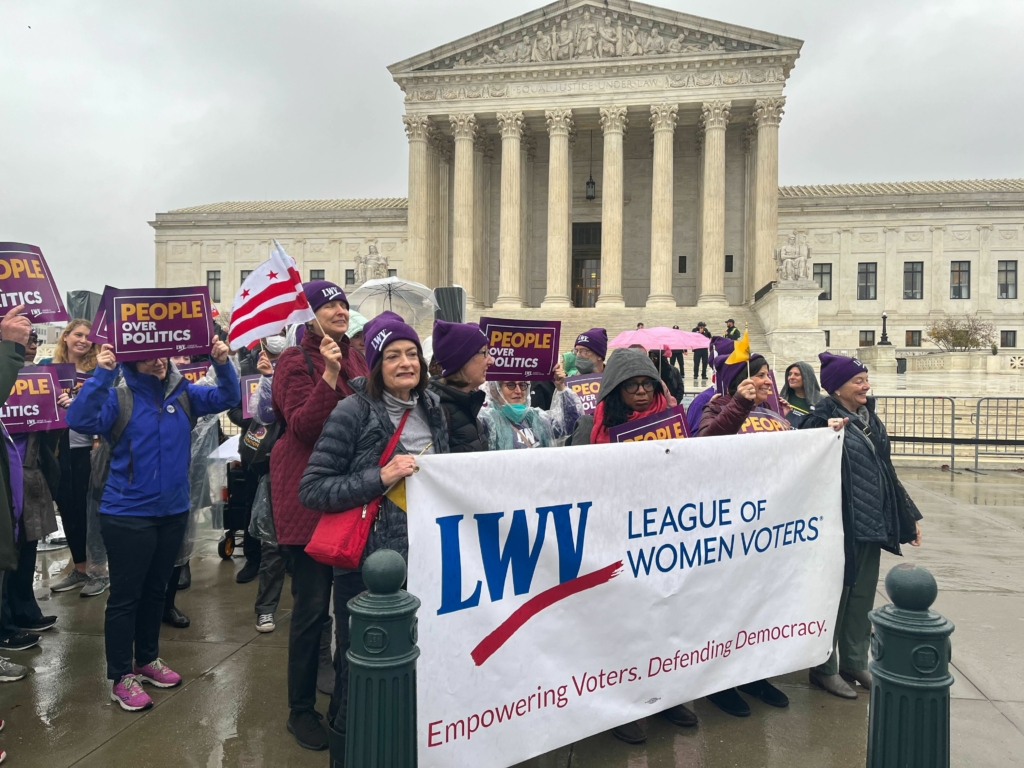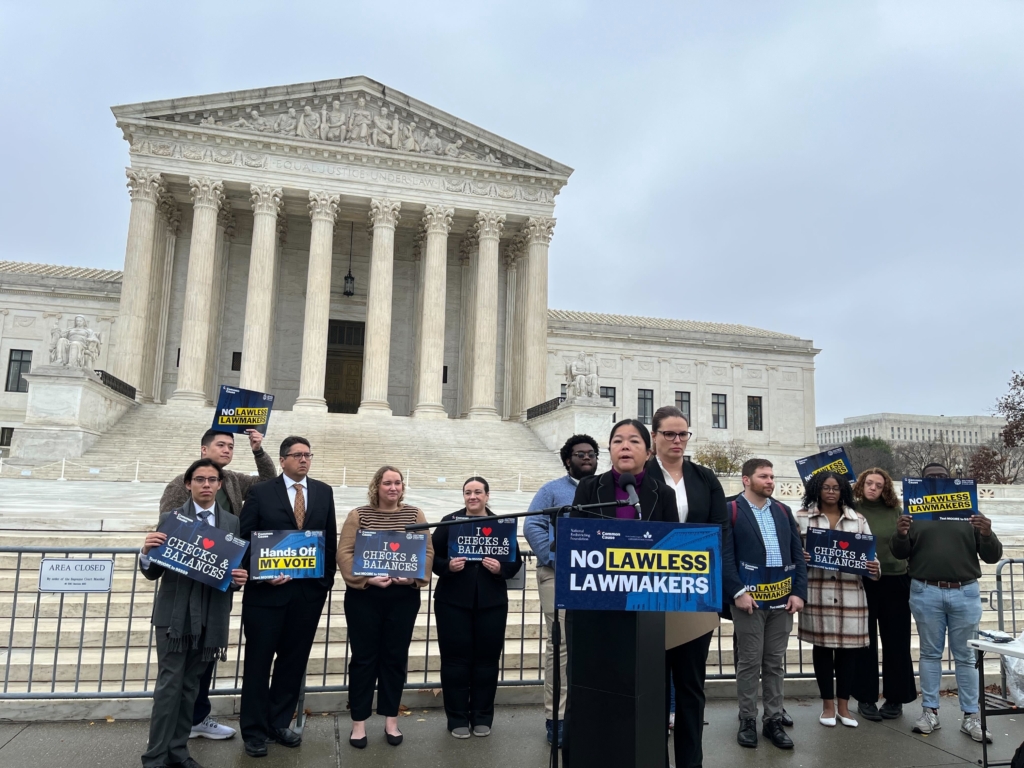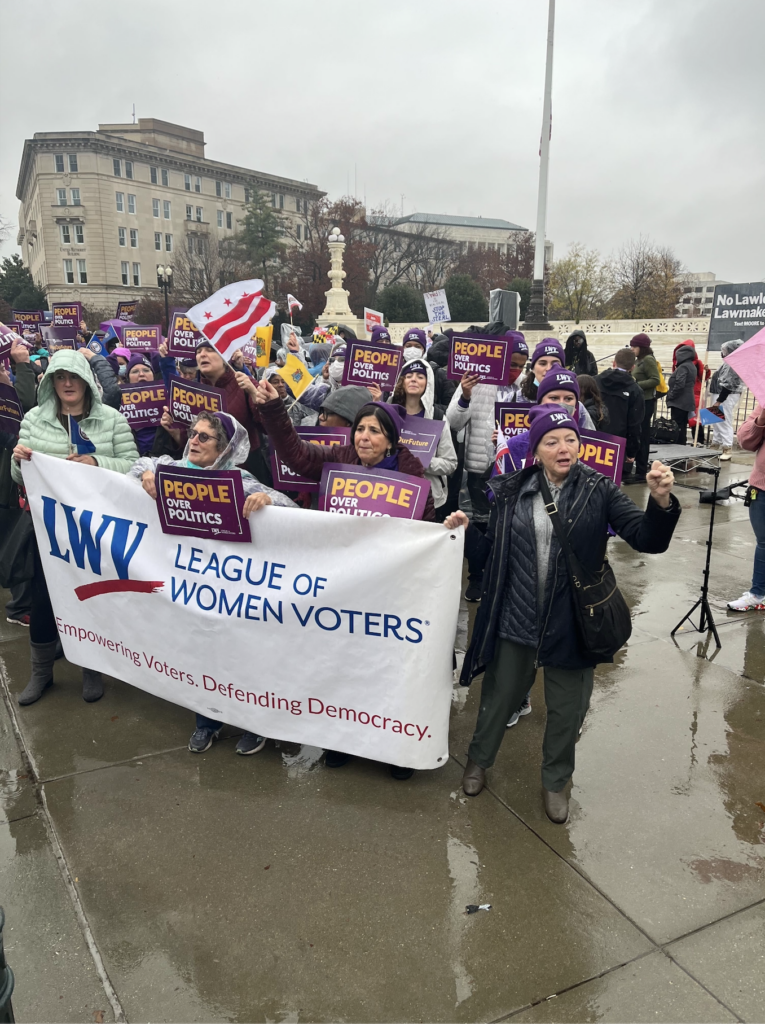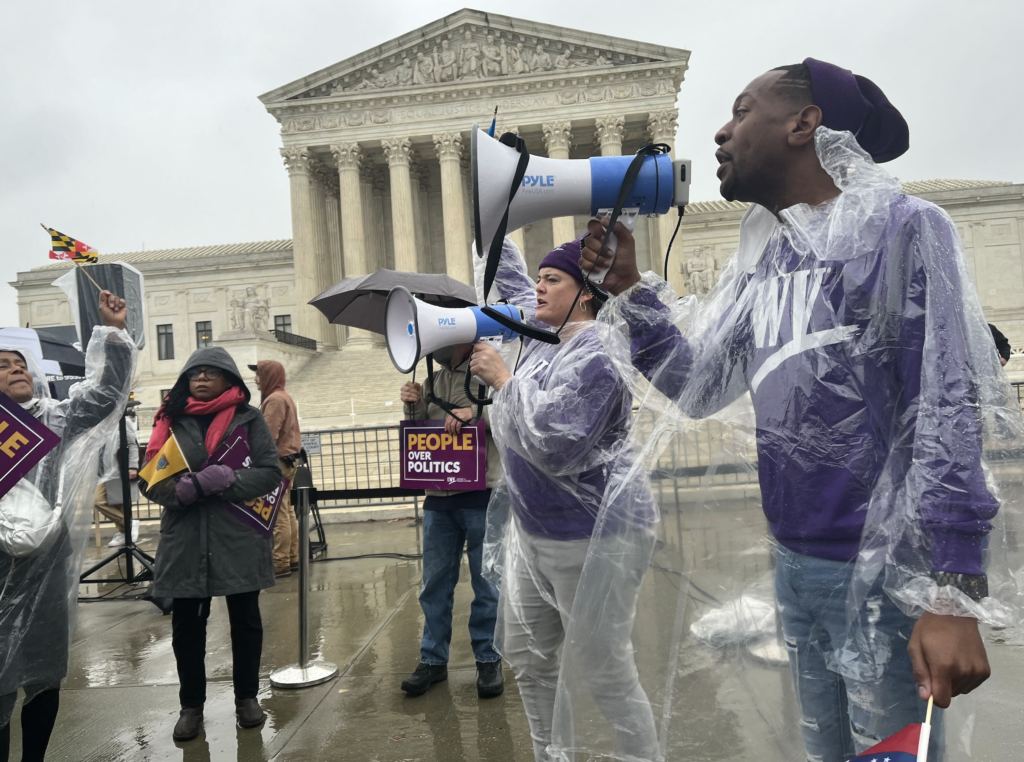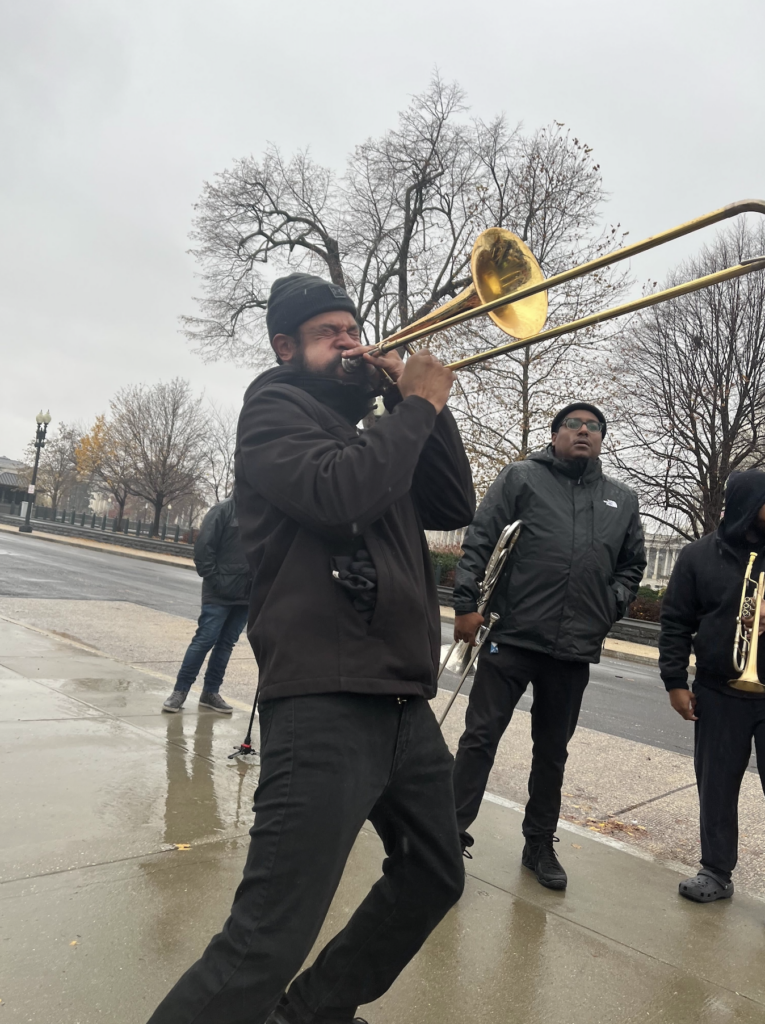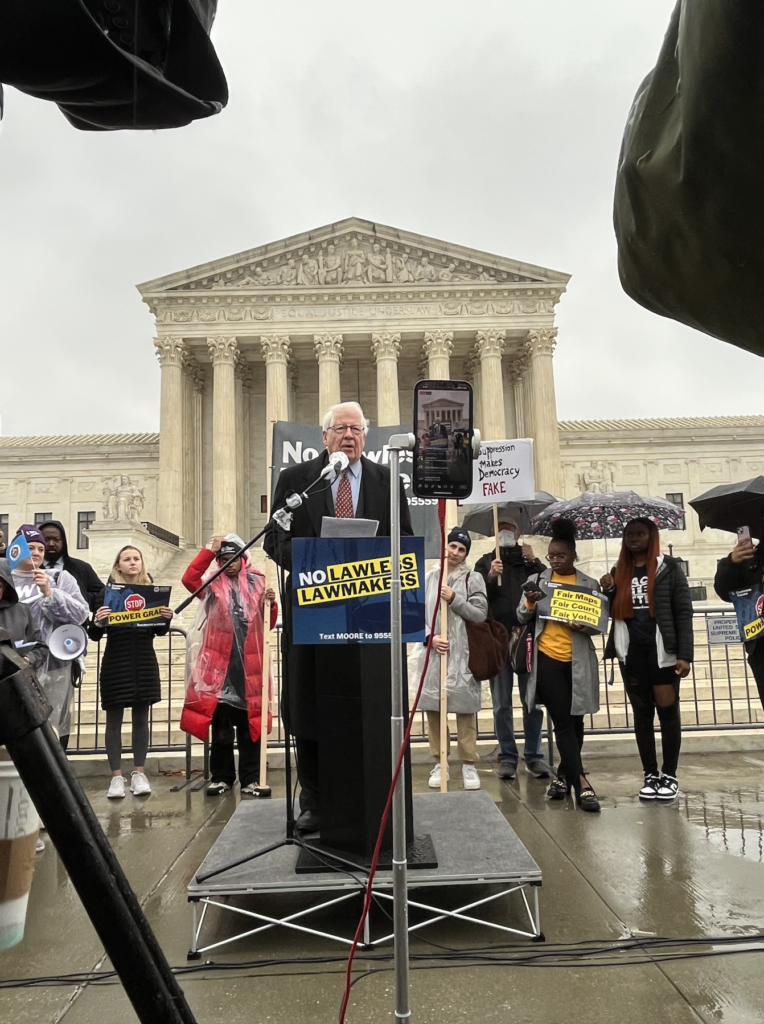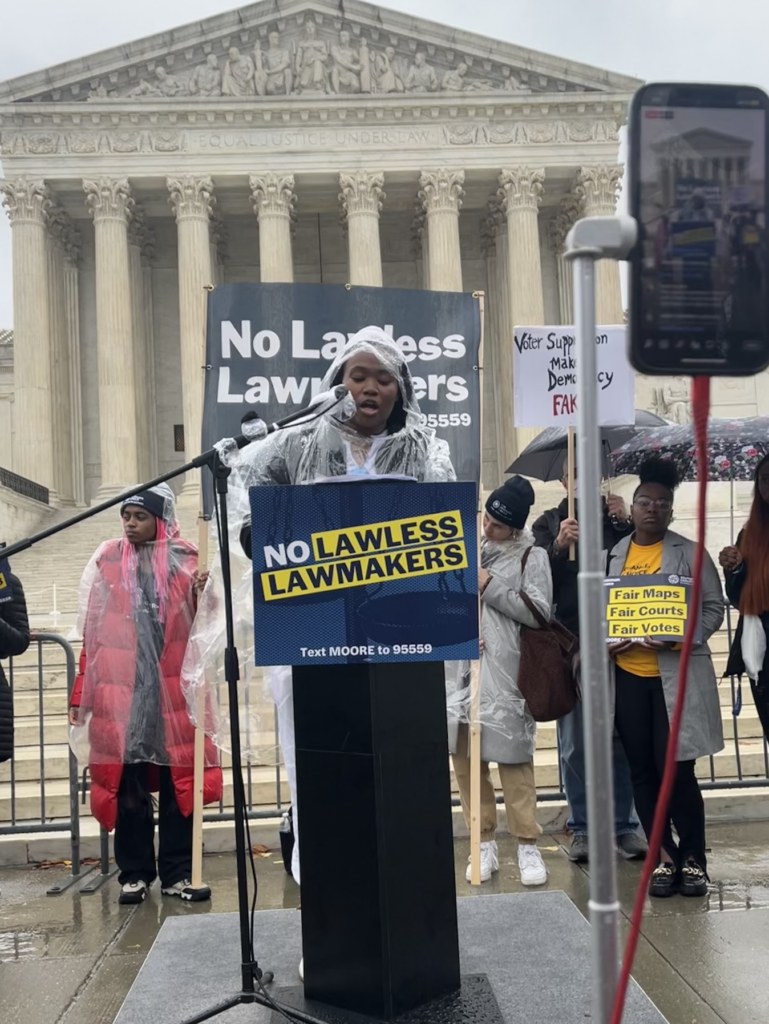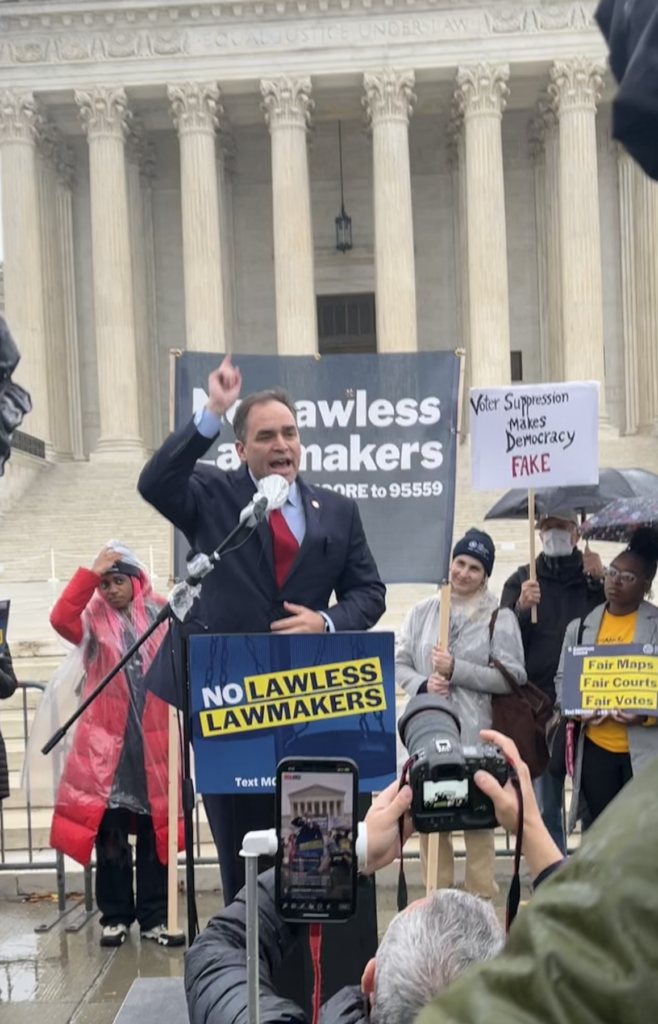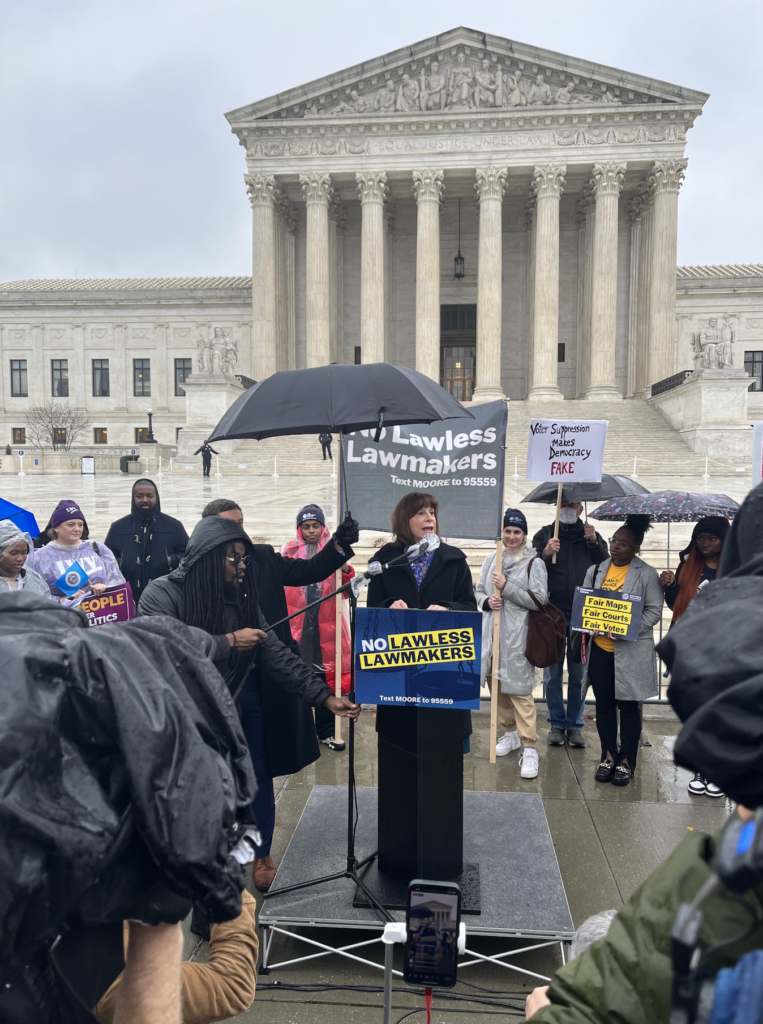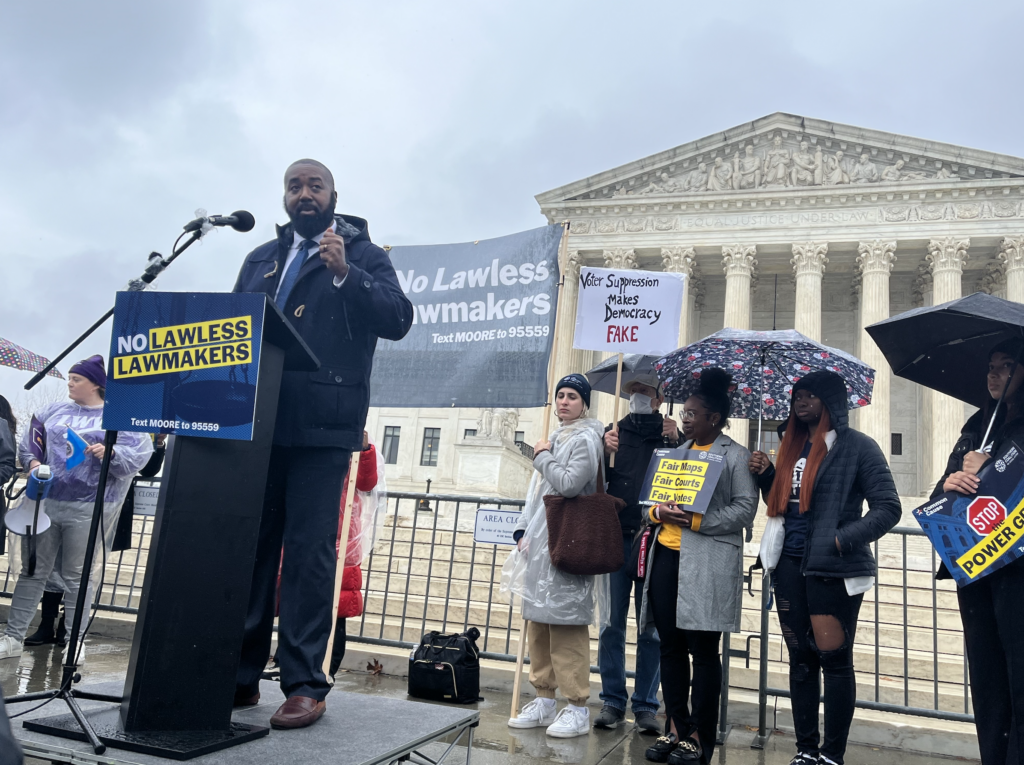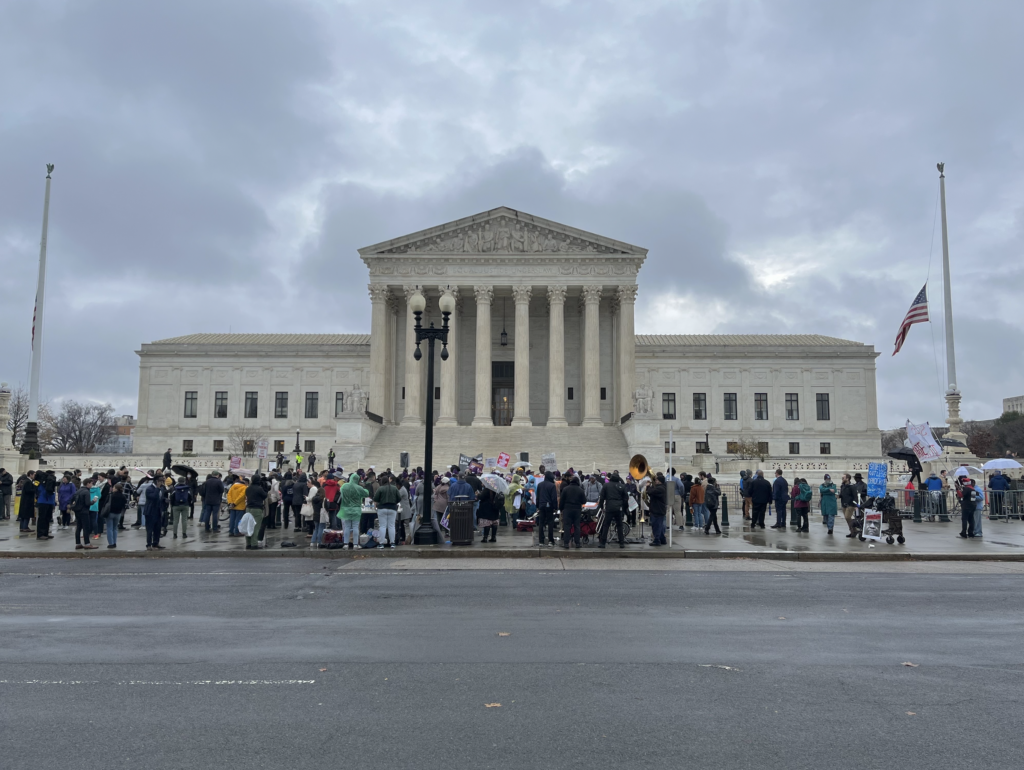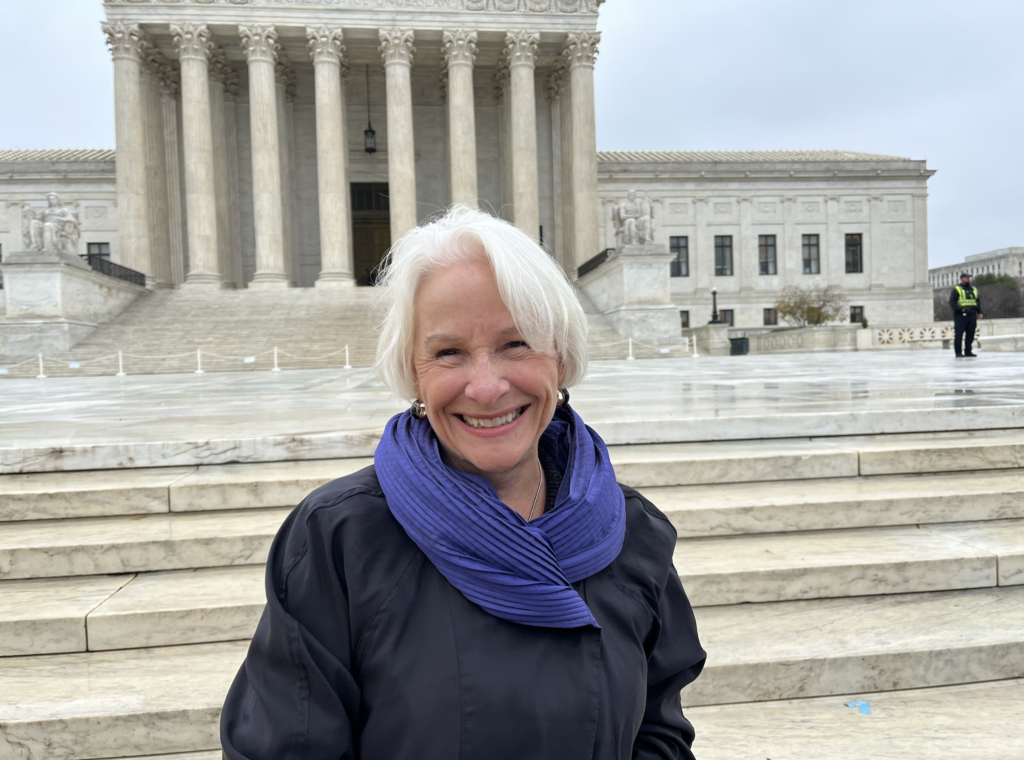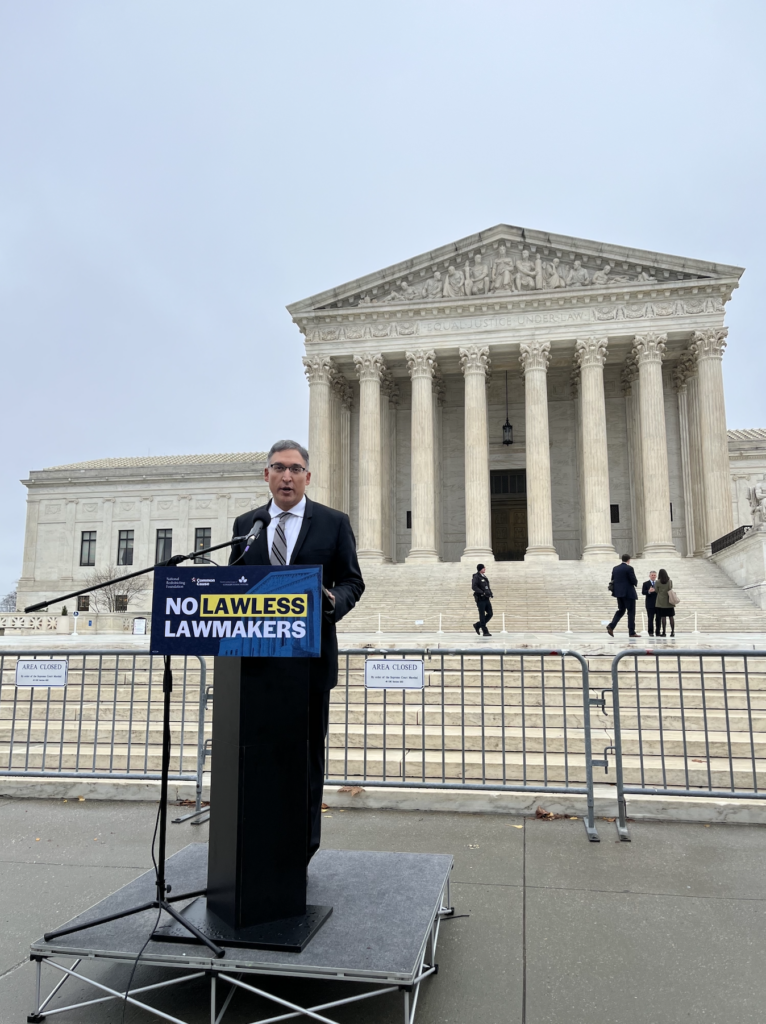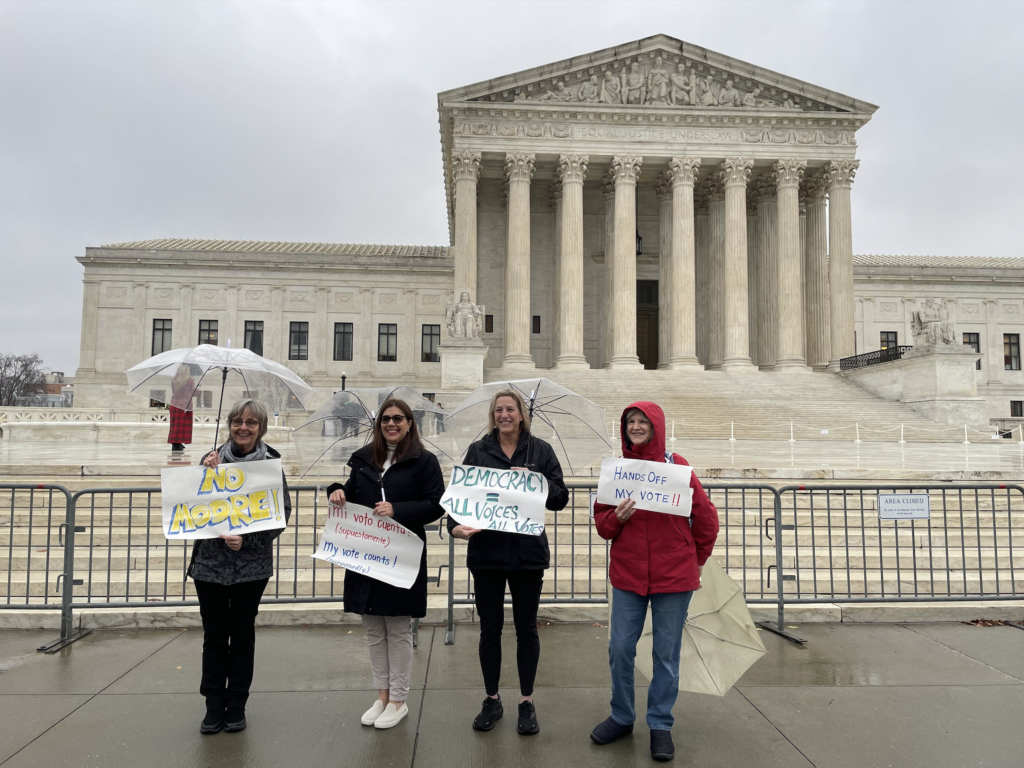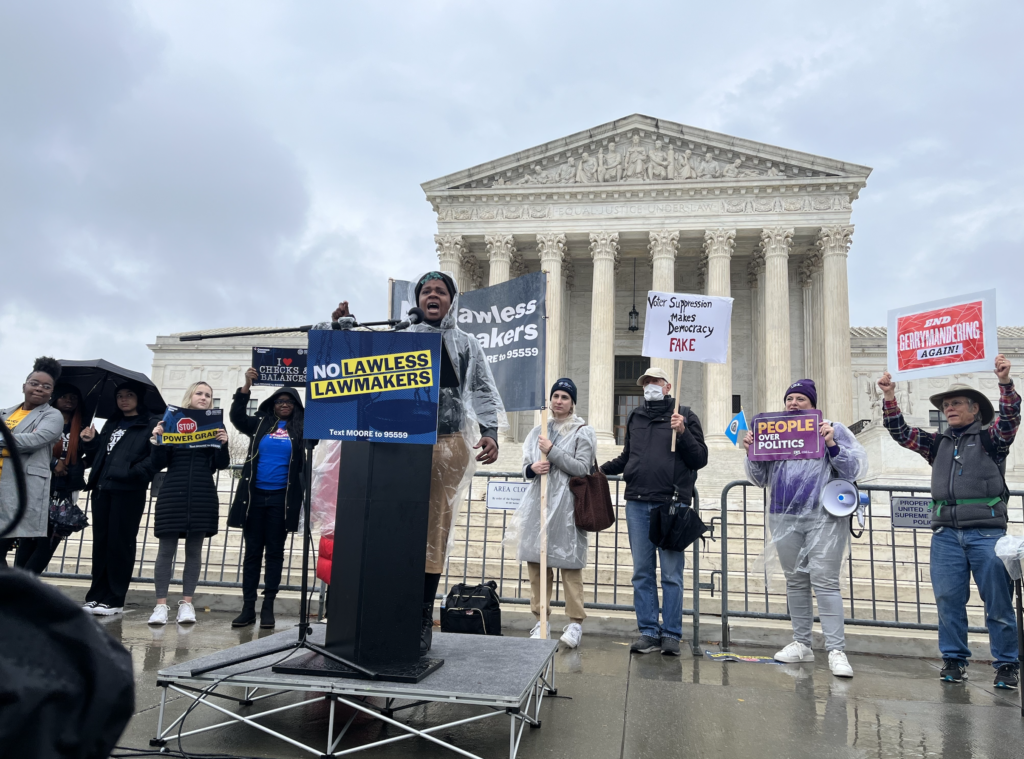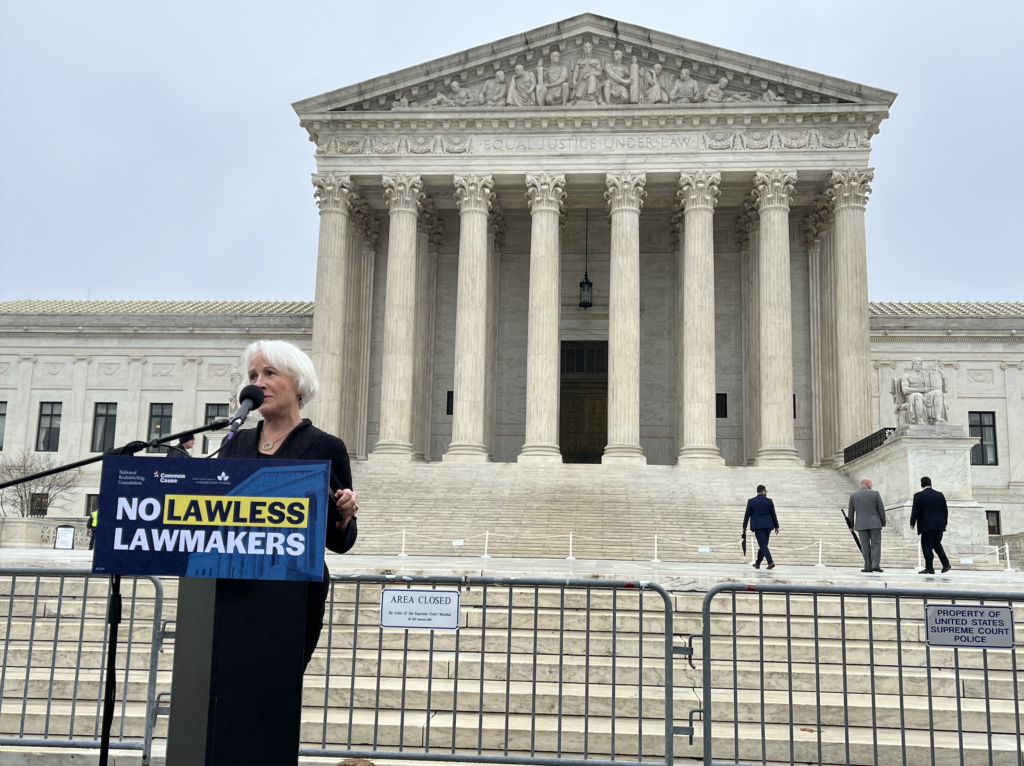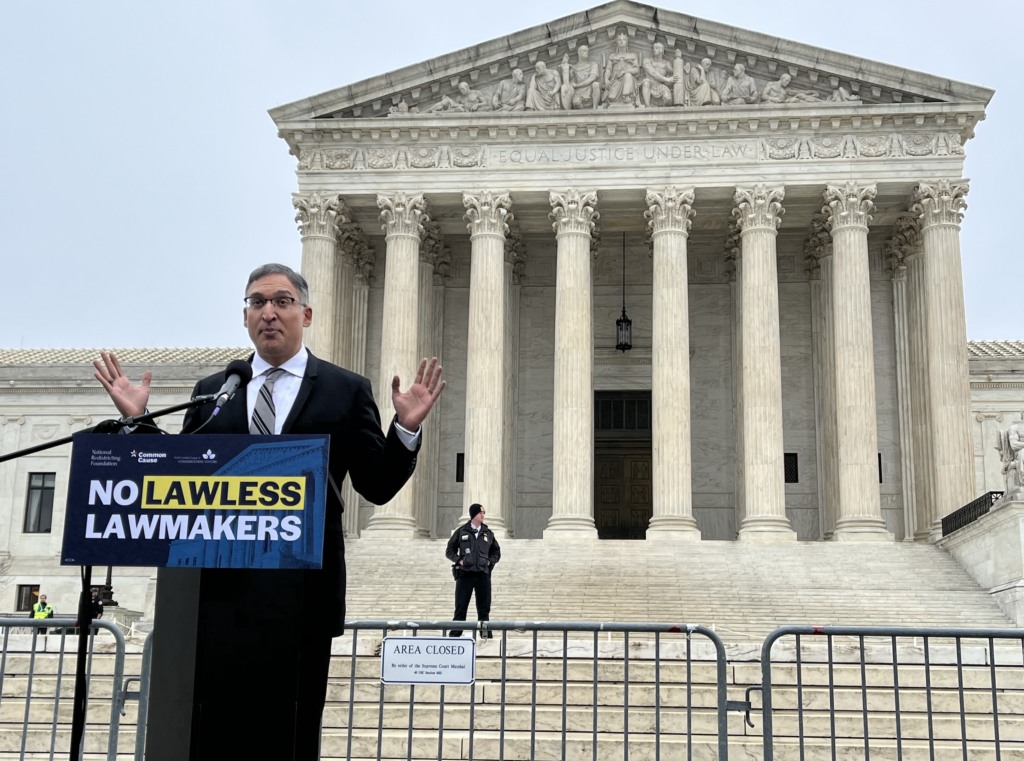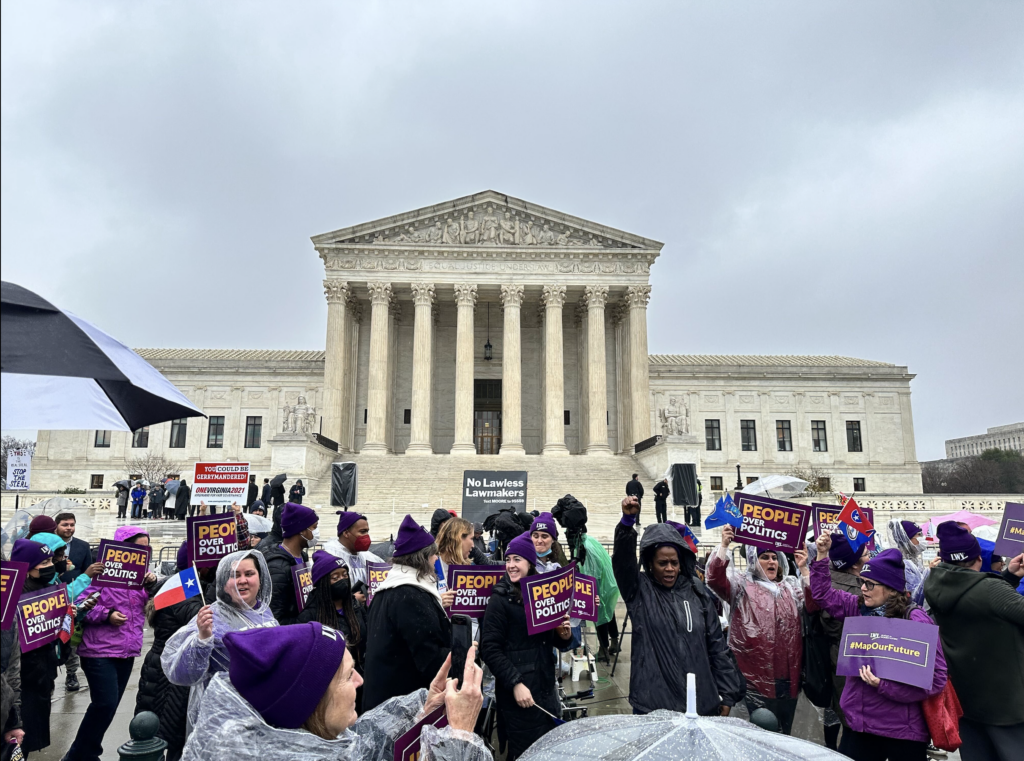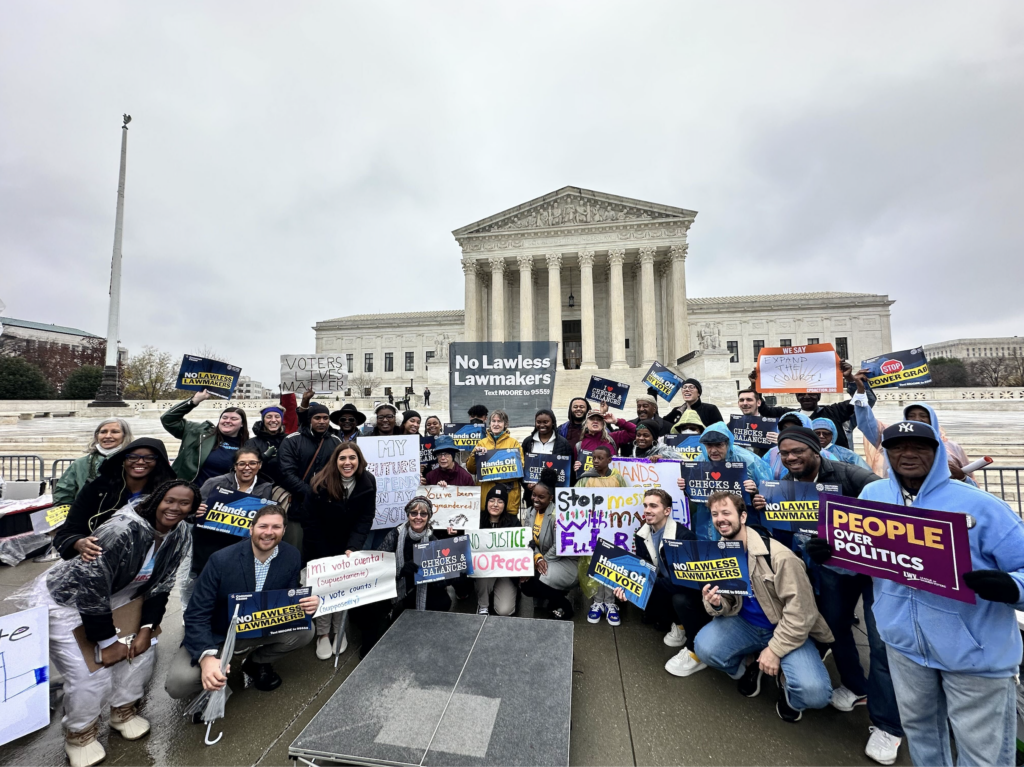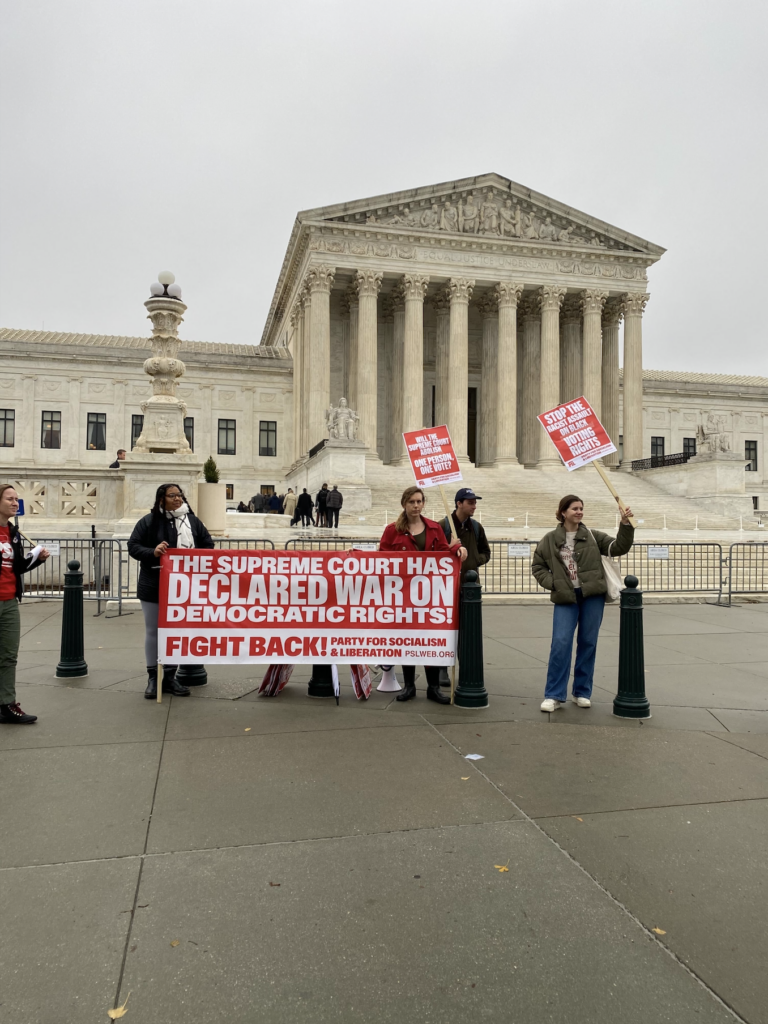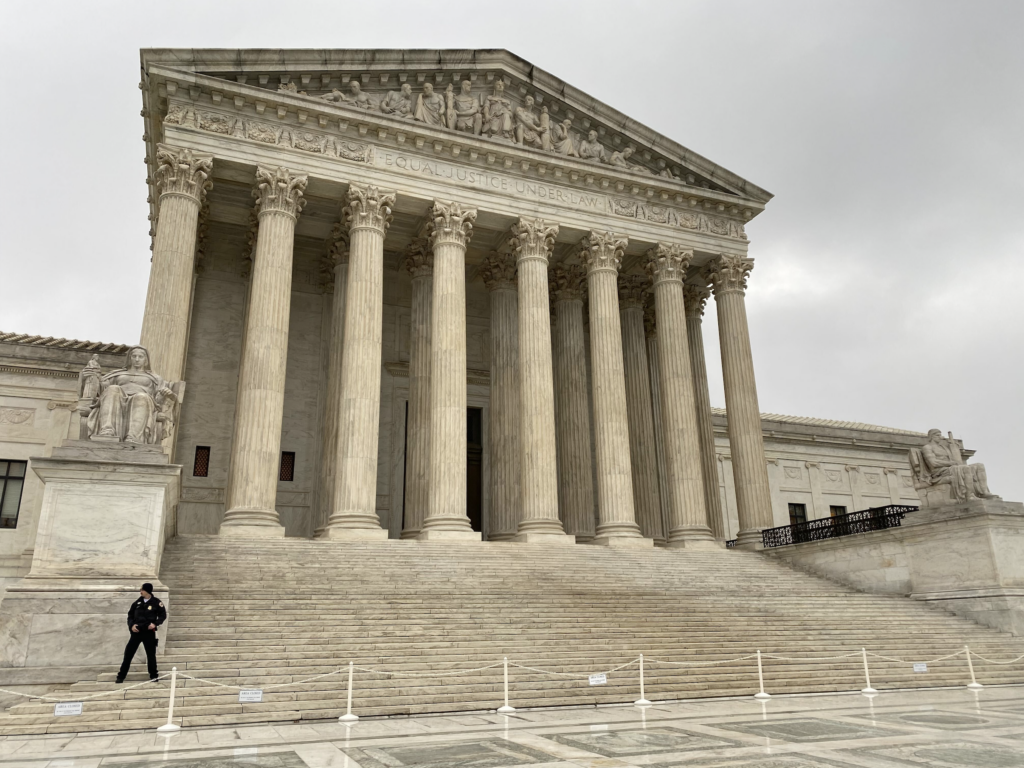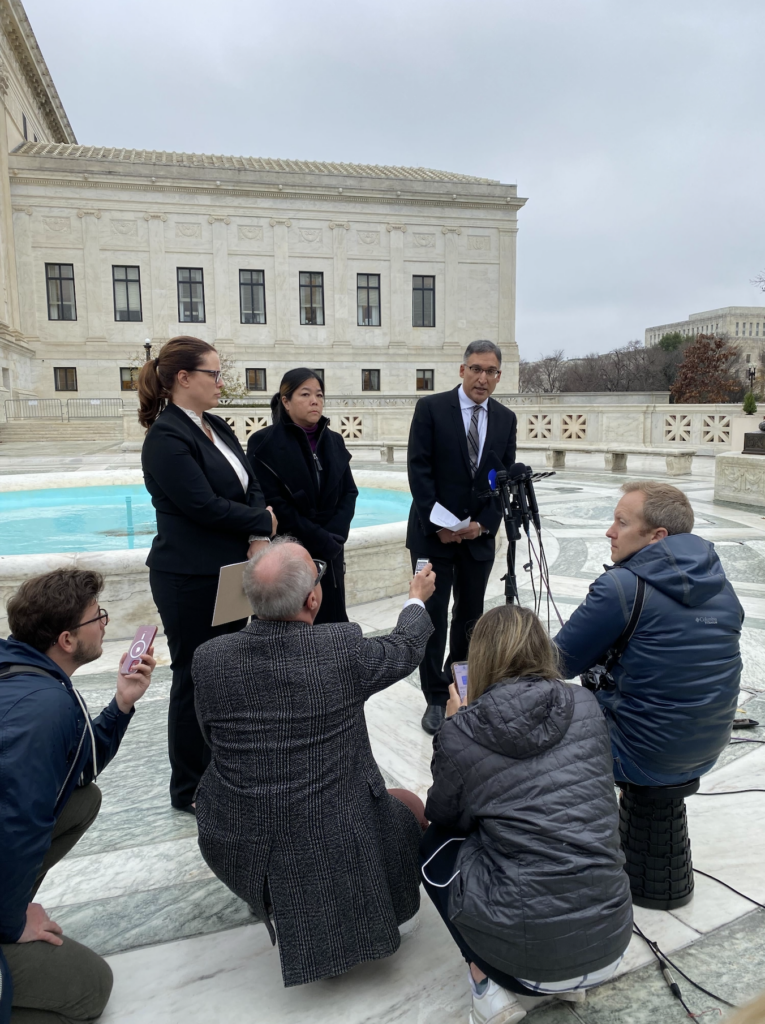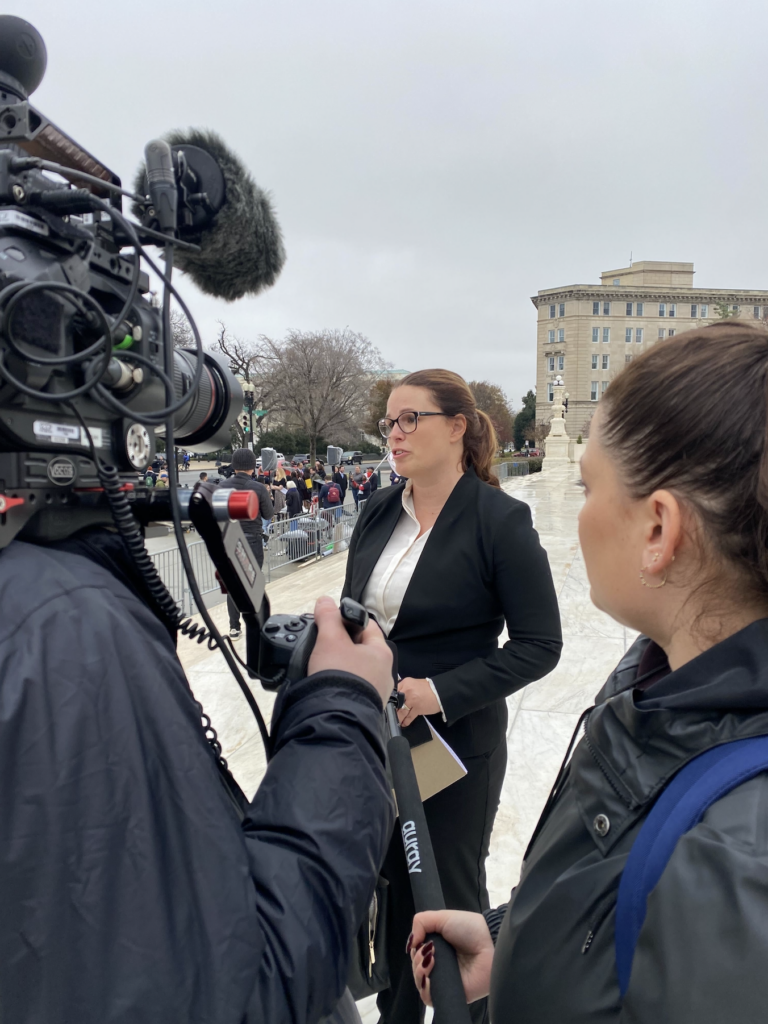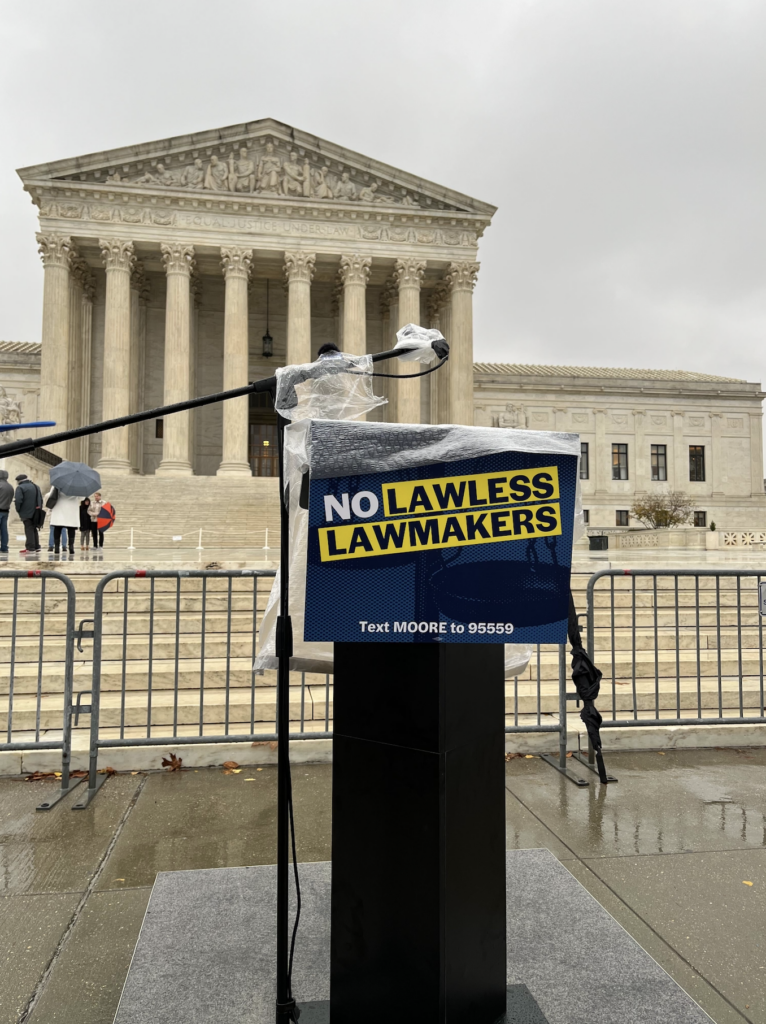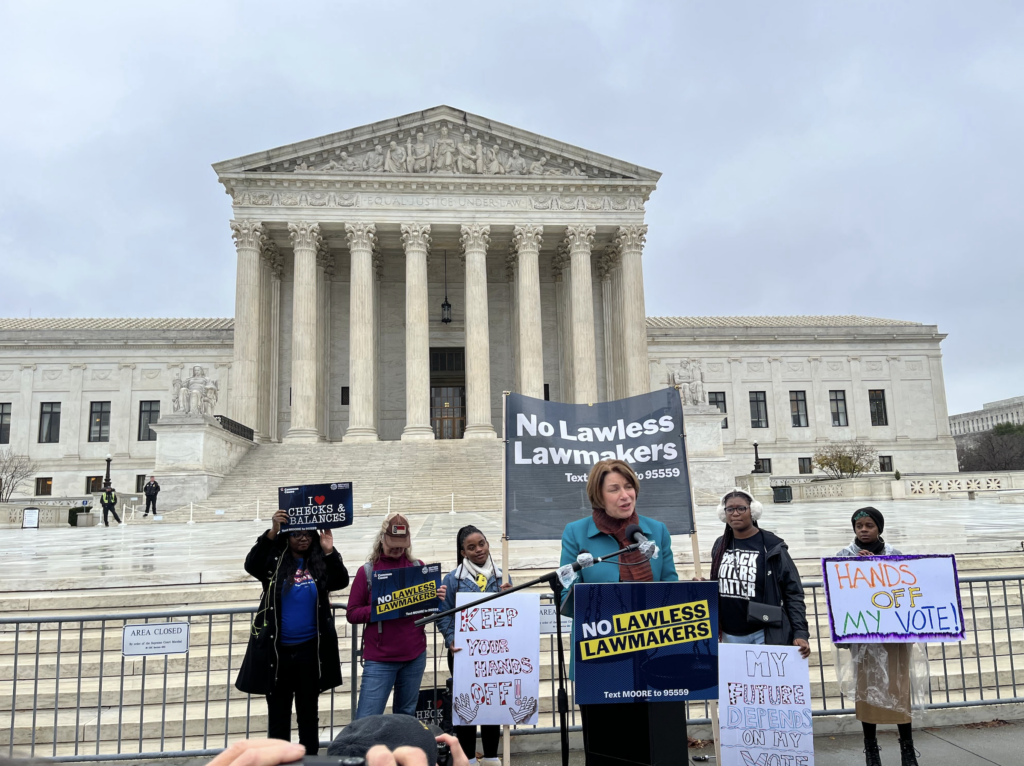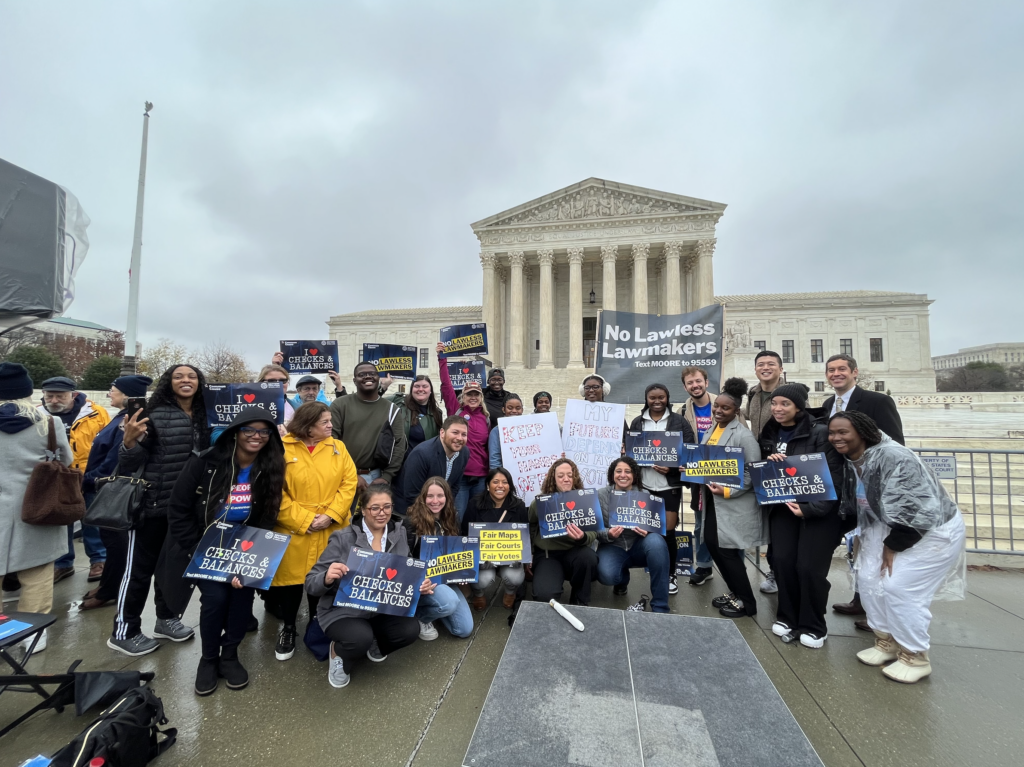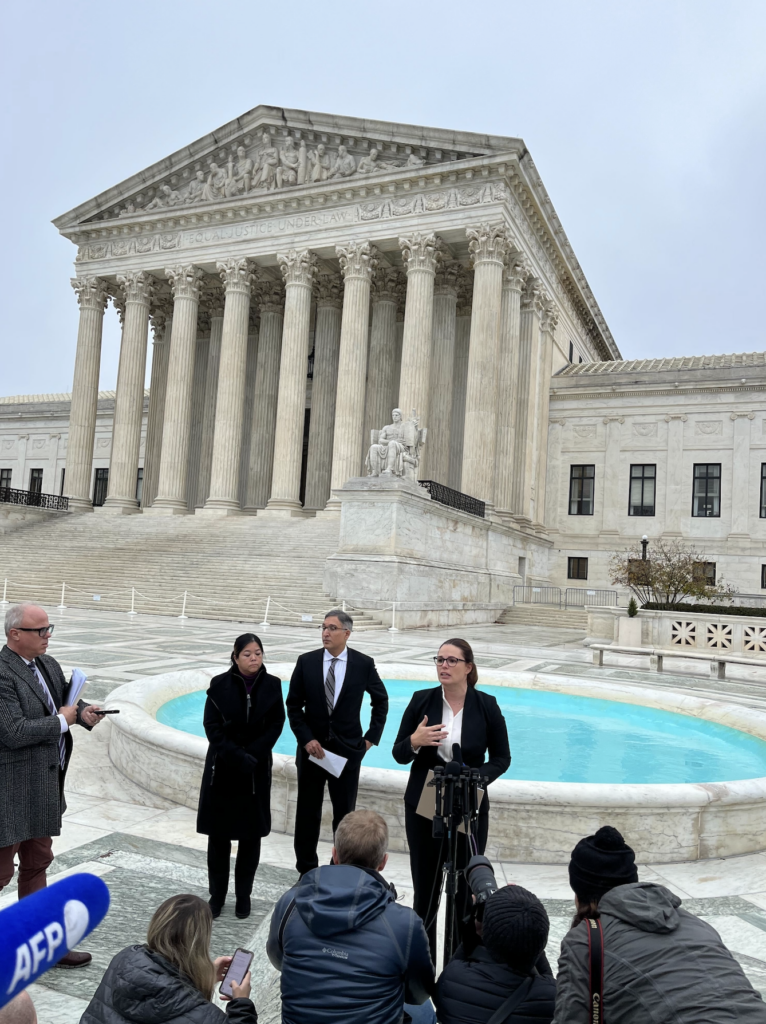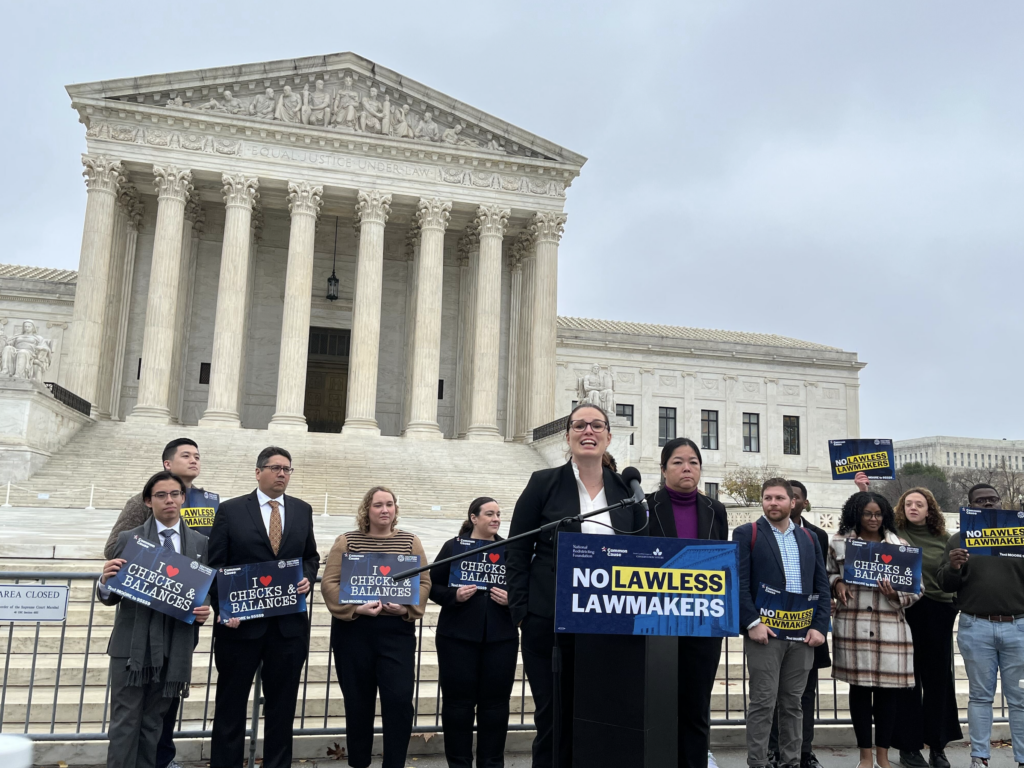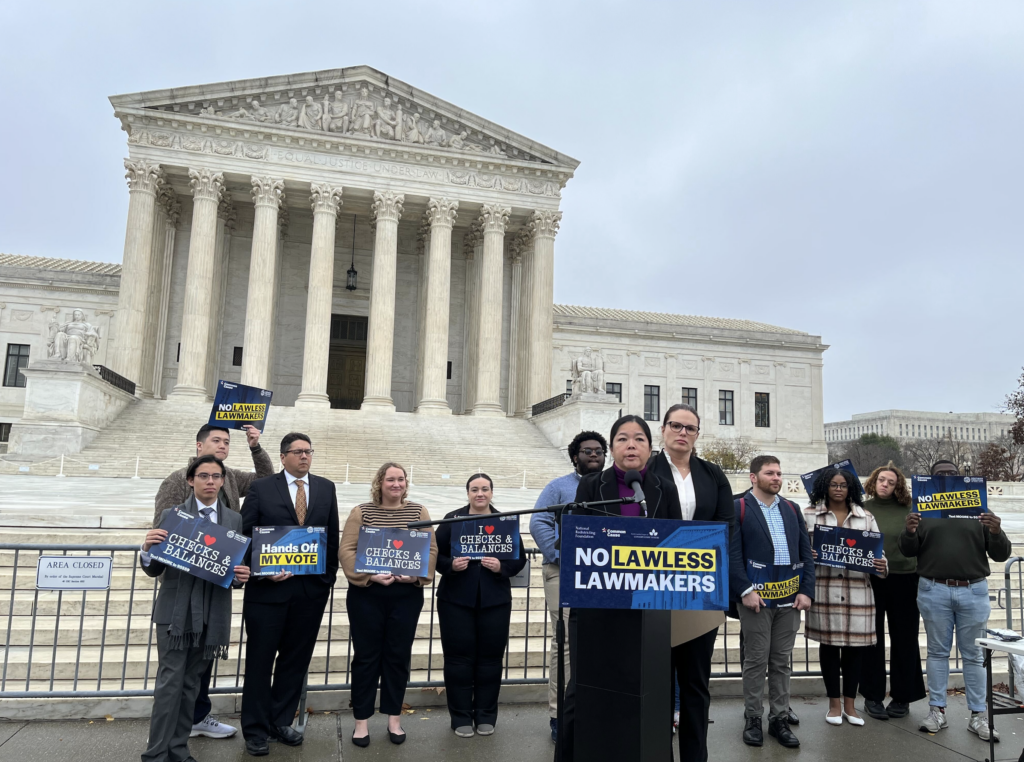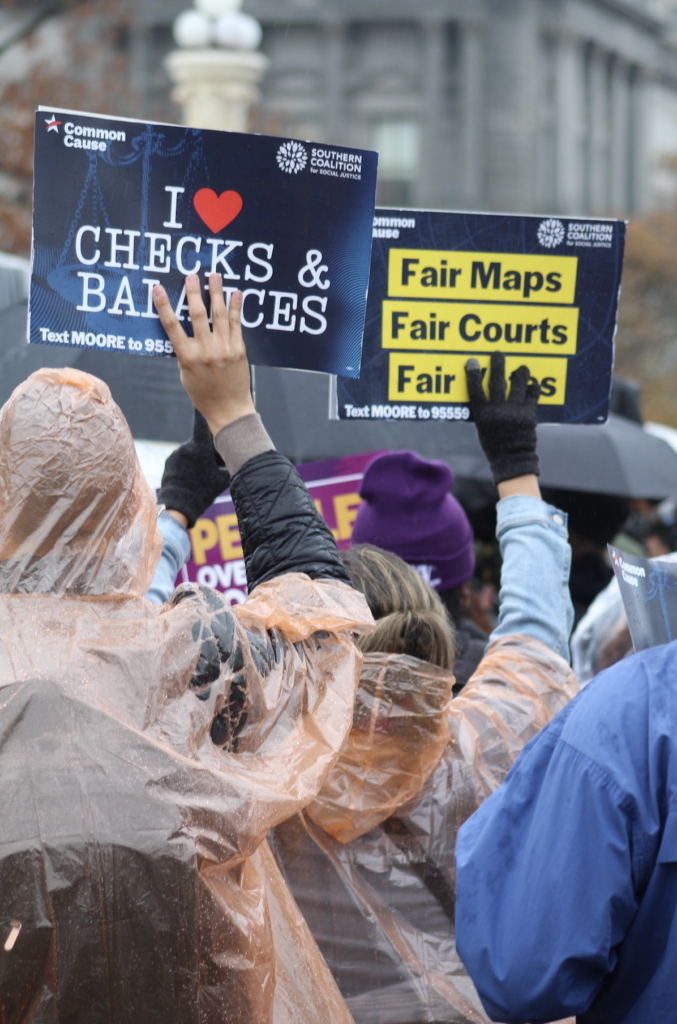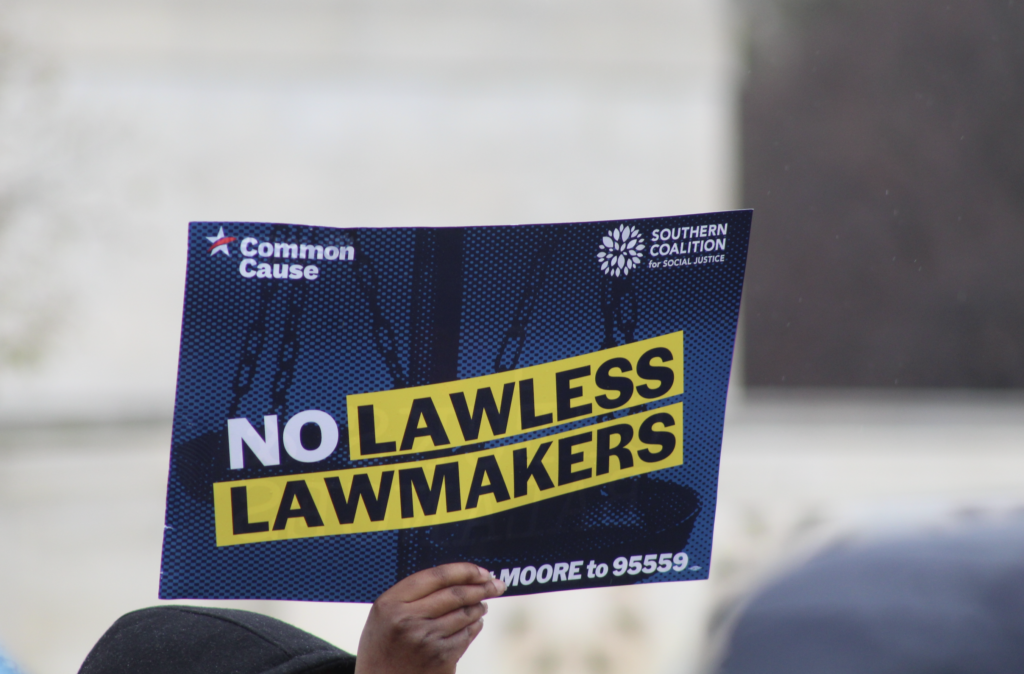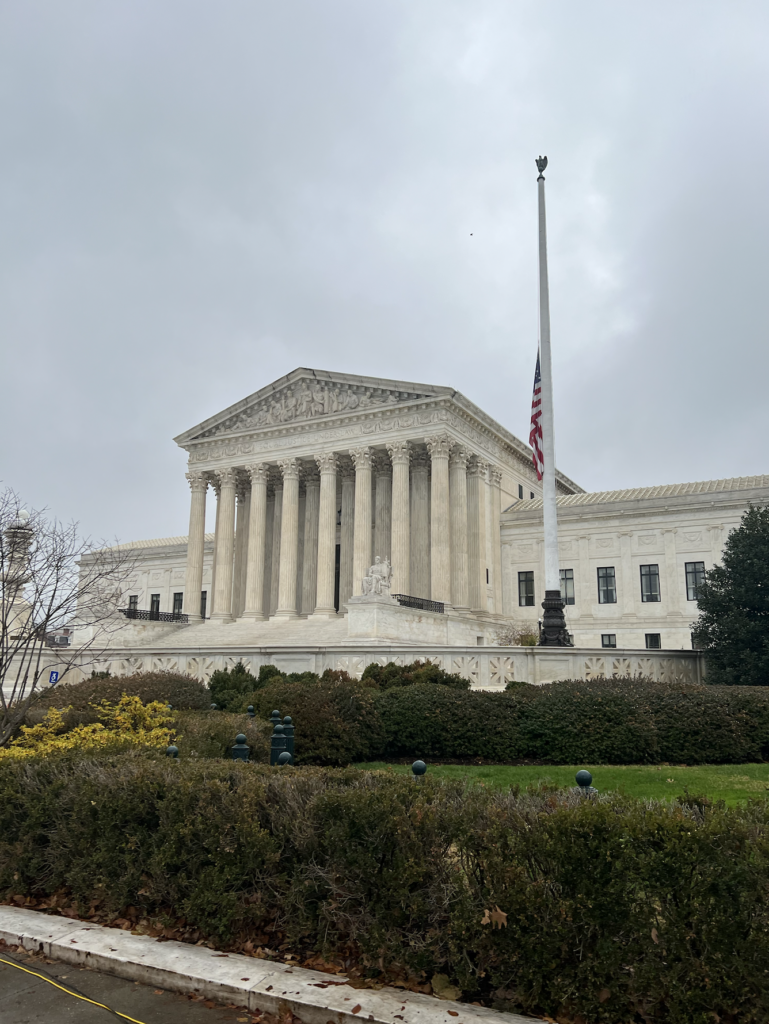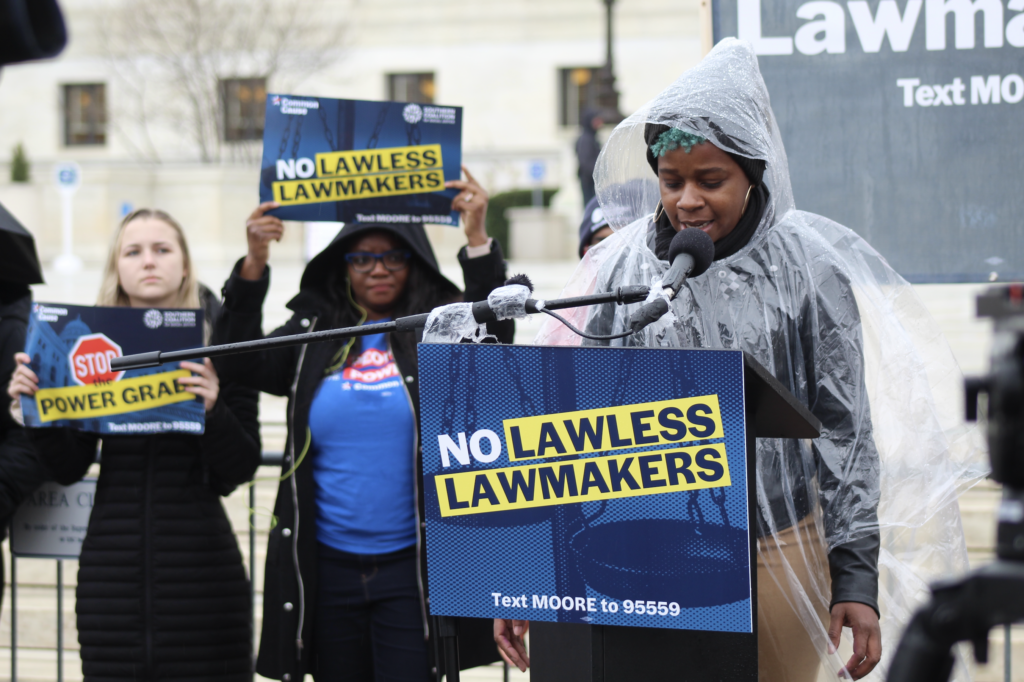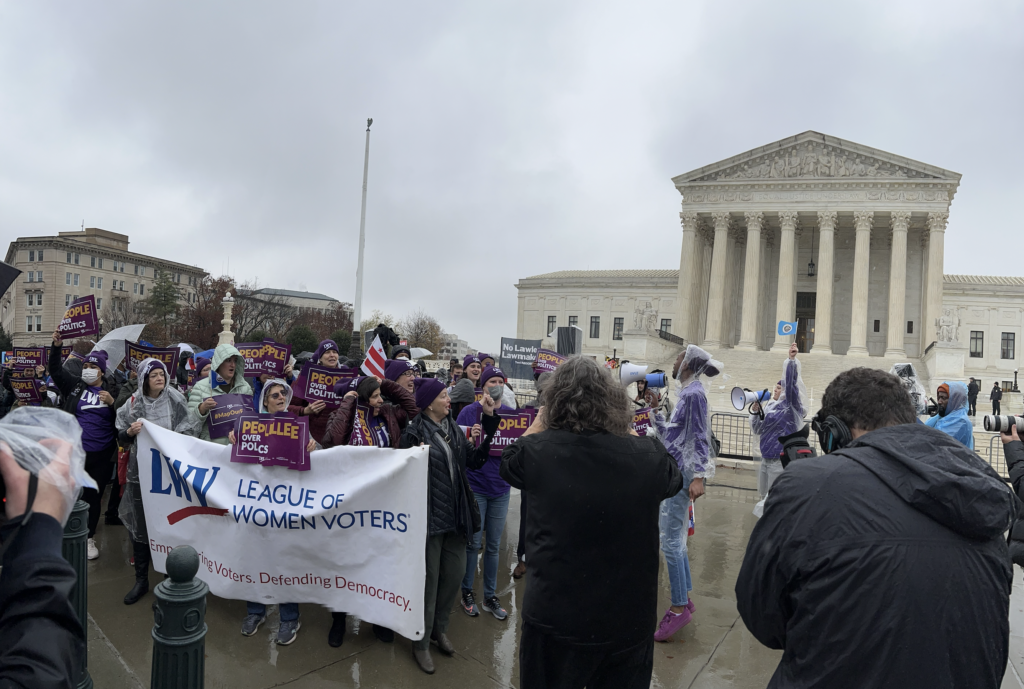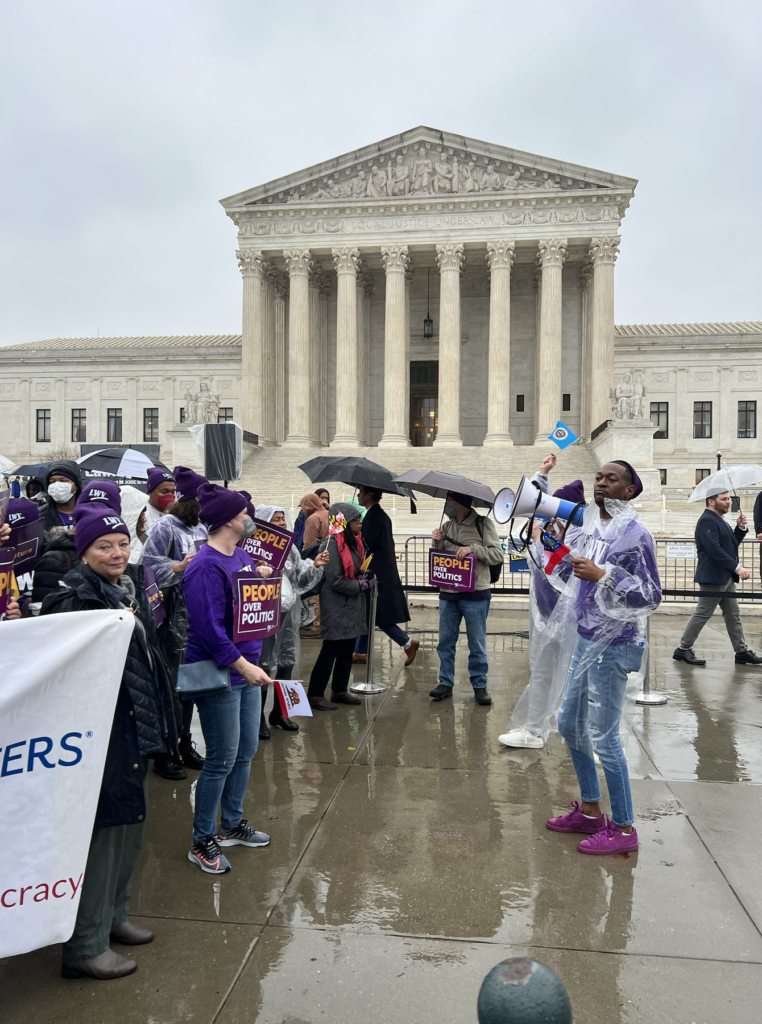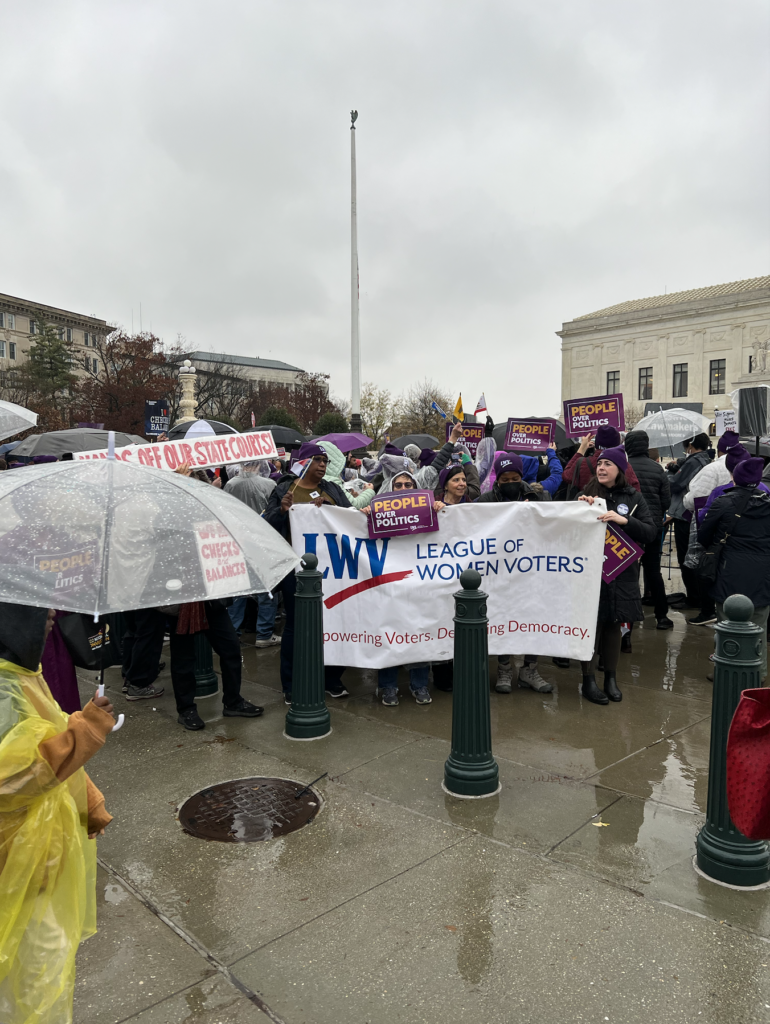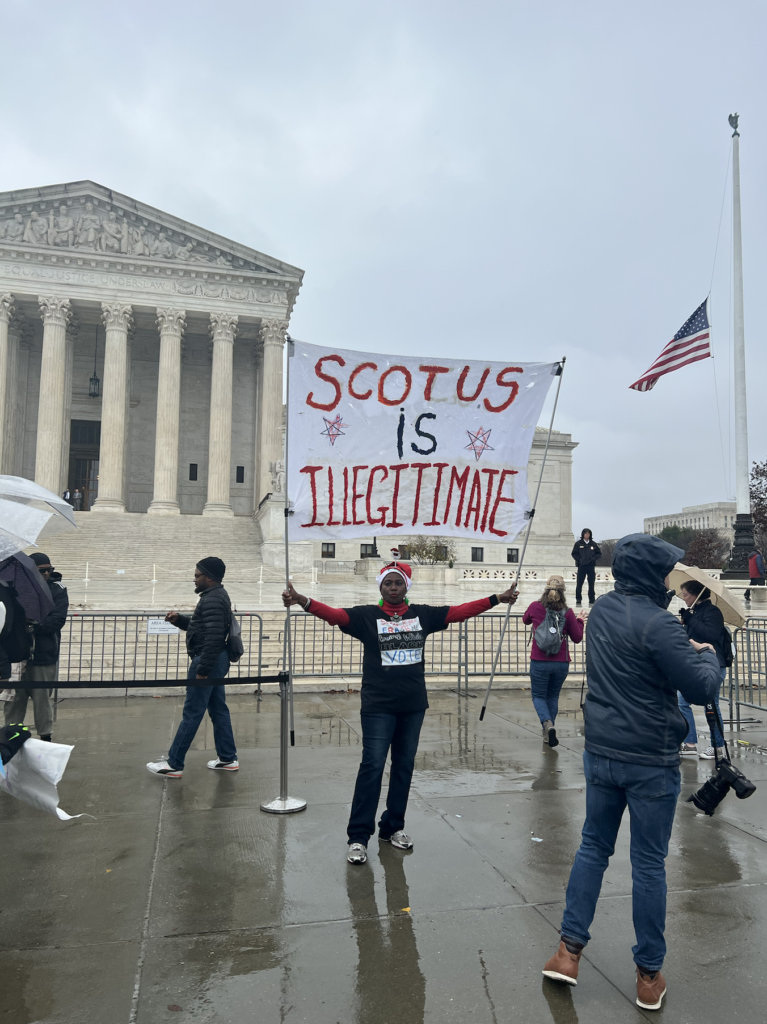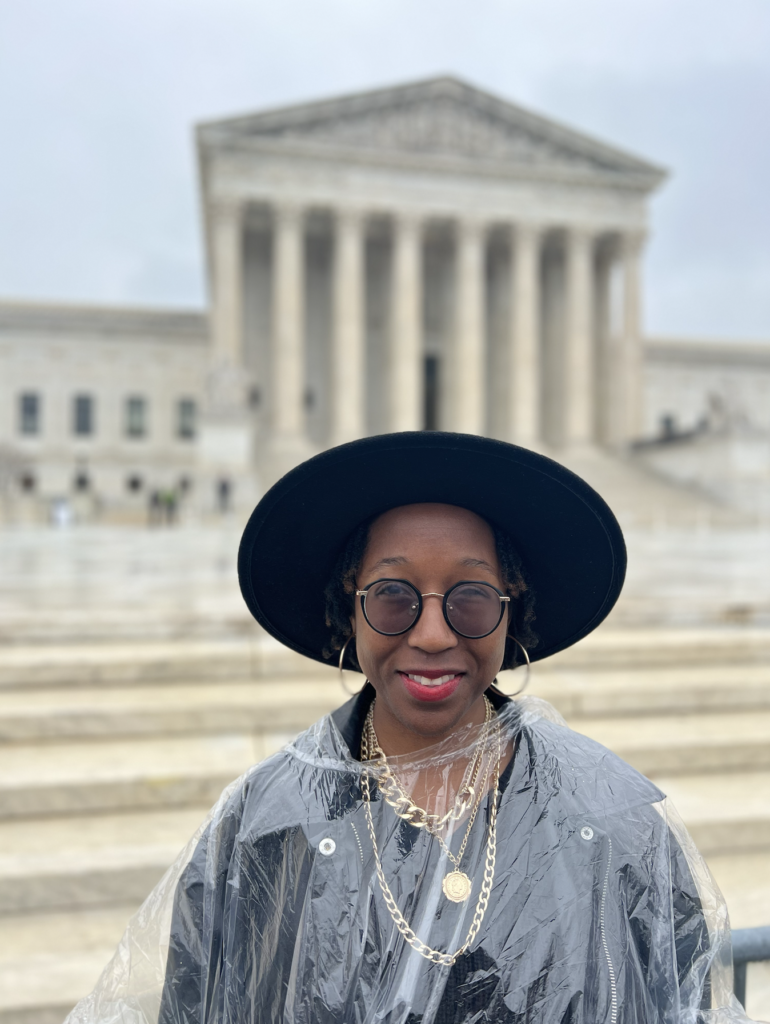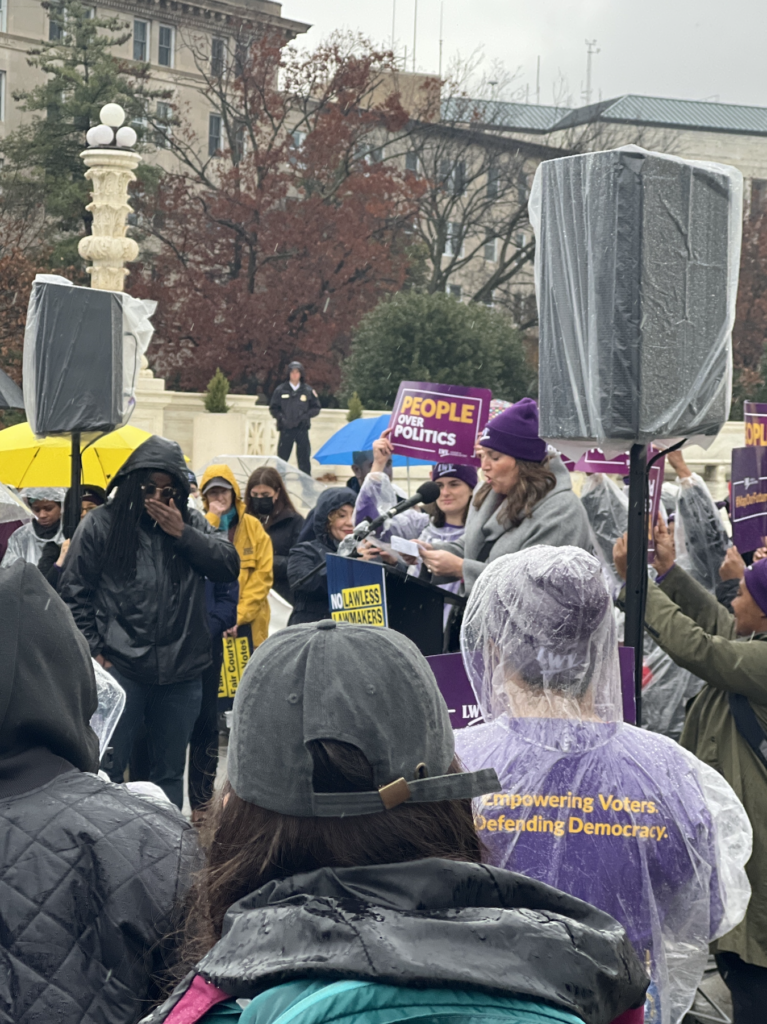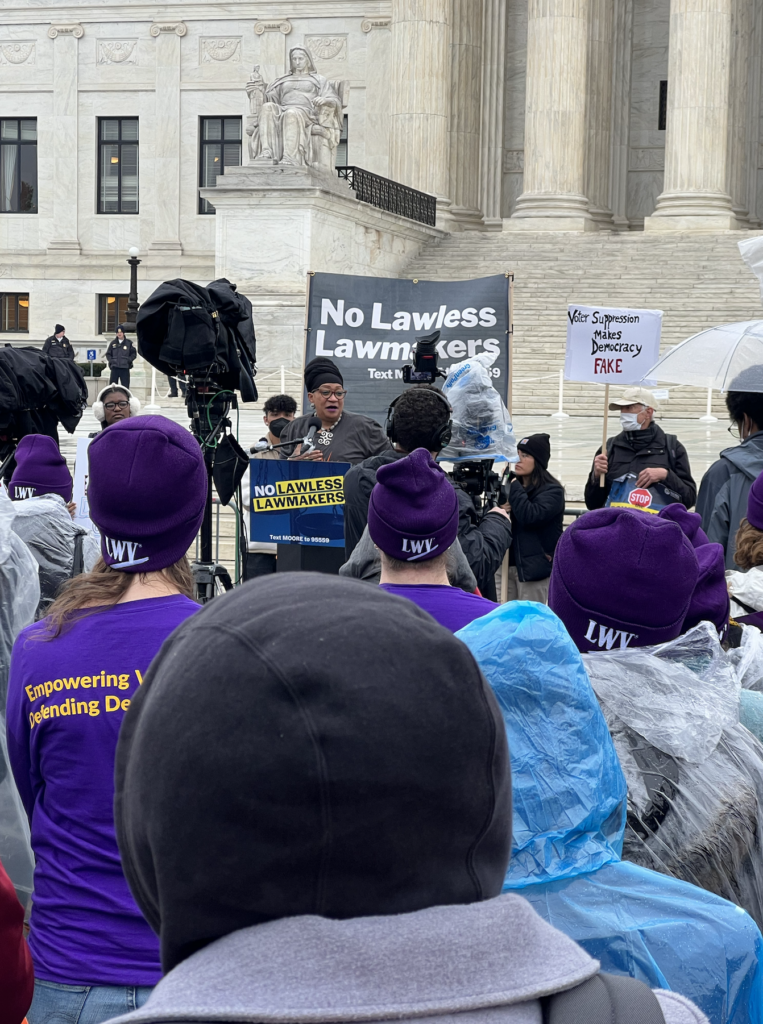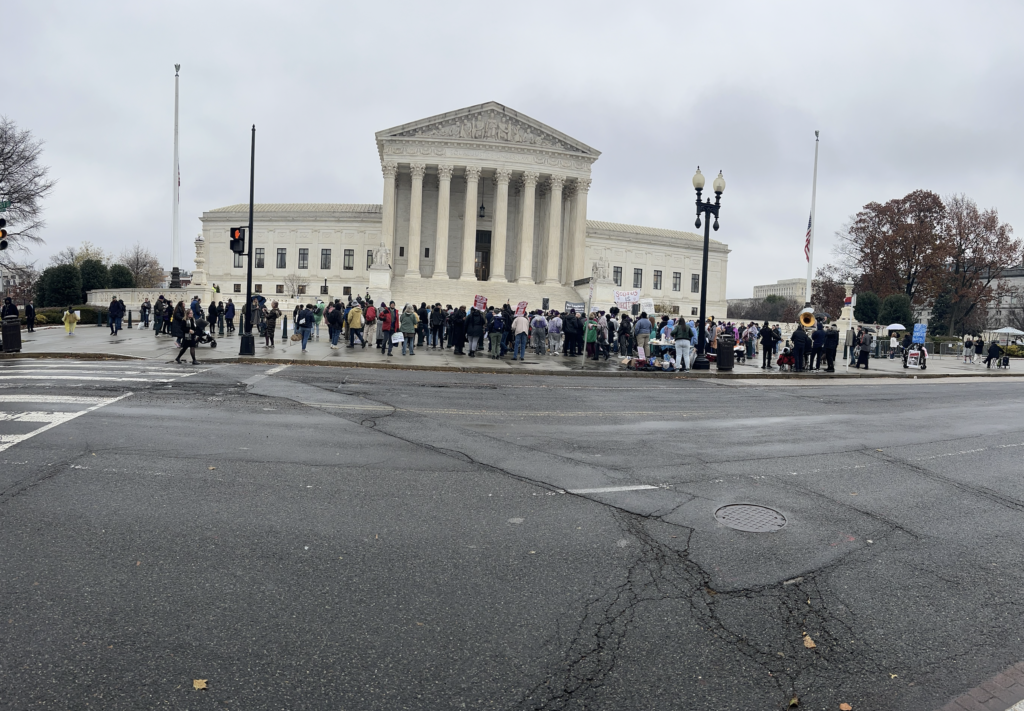On December 7, the U.S. Supreme Court heard arguments in Moore v. Harper, a case legal experts are calling “the most important debate over federalism in decades, if not in the nation’s history.”
Voting rights advocates are calling Moore’s argument, which is based on a fringe legal argument called the Independent State Legislature Theory (ISLT), a grave threat to our democracy. The legislators who subscribe to this theory pervert the Elections Clause in the U.S.Constitution to assert that state legislatures alone have the power to determine how federal district maps should be drawn, and furthermore that state courts cannot intervene in that process, nor can state constitutions be enforced if they are contrary to the will of a group of lawmakers who seek to entrench their power.
As nine justices weighed the future of our elections on that Wednesday in early December, concerned voters, students, elected officials, and advocates from voting rights organizations across the nation braved the cold drizzle in the nation’s capital to rally against the power grab.
In between speakers, impassioned voices rang out in solidarity and exasperation with chants of “Whose vote? Our vote!” and “This is what democracy looks like!” A band kept spirits high despite the poor weather as they played their drums and brass instruments. One voter said it reminded her of New Orleans as she danced with a sign that read “I [heart] Checks and Balances.”
As speakers took the mic, they sounded the alarm about the grave threat this case presents to the checks and balances our democracy depends on. Advocates warned of the harm to voters, especially voters of color, that will undoubtedly come if the nation’s highest court adopts this fringe theory and puts partisanship above people. Many pointed out that this fight is not a new one.
“We have too often found ourselves at the front edge of a growing war against democracy,” said Jaki Shelton Green, North Carolina’s Poet Laureate.
This isn’t the first legal battle revolving around efforts to rein in federal partisan gerrymandering. Some state constitutions, such as North Carolina, include a provision guaranteeing “free and fair elections,” and state supreme courts have acted on these provisions. If adopted, the independent state legislature theory (ISLT) would limit state courts’ ability to enforce these provisions in state constitutions and regulate partisan gerrymandering.
The issue has also come before the U.S. Supreme Court as recently as 2019, when Common Cause, the North Carolina Democratic Party, and a group of North Carolina voters filed a lawsuit over the state’s 2016 remedial congressional map. That case is known as Rucho v. Common Cause. In this and previous cases, the high court has considered whether they and other federal courts can exercise their judicial power to find districting plans unconstitutional because they are partisan gerrymanders. In Moore v. Harper, they are now considering whether state courts can do so.
Vanessa Gonzalez of the Leadership Conference is one of the many advocates who asserts this latest attack on voters by Moore is part of a recurring and systemic pattern motivated by politicians’ desire to hoard power by choosing their voters rather than voters choosing our representatives.
Apryl Lewis of Action NC and Anneisha Hardy of Alabama Values spoke of the importance of organizing and issued reminders of the collective fights going on across the country to protect voting rights and the importance of continuing to fight back.
U.S. Senator Amy Klobuchar from Minnesota closed the event out, stating the importance of not only this case, but of never giving up in the fight for an inclusive democracy.
“We will not rest until we pass federal voting rights legislation,” she promised.
As for ordinary voters, concerned youth, and advocates, we will not rest until our elections are truly free and fair for all.
